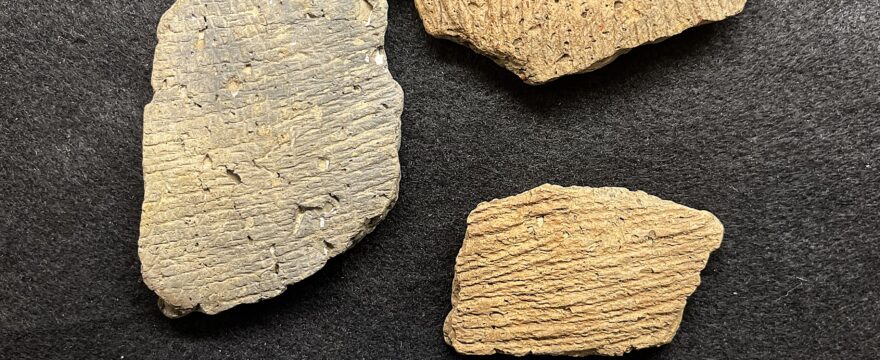Martin Gallivan is leading a project to reshape how Indigenous history in the Chesapeake region is understood, challenging previous generations of archaeologists’ interpretations of a static past prior to European contact. Aided by undergraduate interns, Gallivan and his research partner, anthropology doctoral candidate Taylor Callaway M.A. ’20, aim to use radiocarbon dating and Bayesian modeling to clarify the chronology of Native history, particularly focusing on the spread of shell-tempered Mockley ceramics. Their findings challenge the long standing belief that this tempering technique spread southward from the Northeast, suggesting instead that it originated locally in the Lower Chesapeake and spread north. Their project seeks to reinterpret material culture and promote a more dynamic and inclusive understanding of Native history.
Read the full article on William & Mary’s website: https://www.wm.edu/as/news/2024-2025/anthropology-professors-research-aims-to-illuminate-the-deep-history-of-native-societies-in-the-chesapeake.php

Leave a Reply